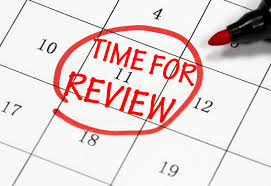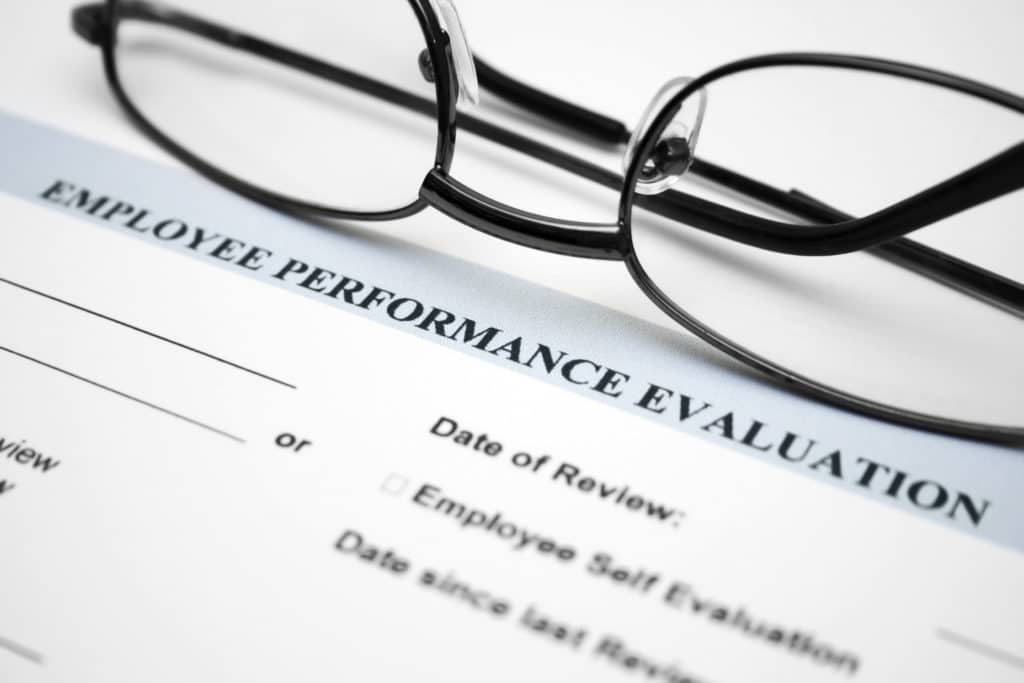Performance reviews are a discussion on what both the employee and manager can improve on, and how to create an action plan to accomplish those goals. While employers have traditionally given reviews annually, many companies are changing the format to allow for feedback on a more regular basis. The modern performance review is an optimal time to visit long-term goals and create an action plan to meet them.
Tips for giving effective performance reviews:
Set employee expectations.
Give the employee an agenda and an idea of what to expect so they do not feel nervous. Employers can provide an outline or topics ahead of time to allow the employee more time to think about detailed responses to questions.
Every review should include an action plan for the future. Agree on a set of goals with the employee, and use it as a roadmap for their performance. That way, they know what metrics the manager expects from them, and the manager has an agreed-upon guide for the employee’s future performance.
Pick a good date.
 Give plenty of warning. Never surprise someone with a performance review. Preferably set them at regular intervals through the year so that employees know when they are coming up.
Give plenty of warning. Never surprise someone with a performance review. Preferably set them at regular intervals through the year so that employees know when they are coming up.
Avoid scheduling reviews during busy project deadlines.
Give them often, and on time.
Frequent feedback helps the employer to resolve problems and improve morale on a regular basis, before they become serious. A brief weekly or monthly meeting keeps communication open, is better for employee morale, and reduces the pressure for annual reviews.
For formal performance evaluation, consider giving employee reviews each quarter, rather than on an annual basis. Employees (especially millennials, according to a study by PwC) want to know how they are doing =in real-time, not just once a year.
Give reviews in a timely manner. Once a review is scheduled, honor the commitment and do not reschedule or cancel it.
Keep it relaxed and brief.
Employees rely on their jobs for their livelihood. They have a lot at stake during a performance review. Even good performers are often very nervous before a review. Try to put them at ease with a relaxed tone. Start positive, get right to the point, and end on a positive note, even when the review covers uncomfortable topics.
Set an appropriate amount of time for the review and stick to it. Reviews should not last multiple hours. If the discussion gets thorny, set a follow-up meeting to allow both parties to regroup.
Encourage honest feedback.
Just as employees should not take criticism personally during a review, managers should also be open to hearing where they can improve. Aim to prompt honest dialogue about how the role can improve. When employees are unhappy or feel suffocated, everyone hurts. Productivity drops, and dissatisfied employees may leave in frustration.
Avoid simplistic yes/no questions such as “Are you happy?” or, “Is the project going well?” Why? Because smart employees will often say what they think employers want to hear, in order to protect themselves and avoid a difficult conversation. A better approach is to ask open-ended questions that encourage the employee to share their perspective.
Open-ended questions to ask:
“What are your goals for (the year, a project, their team, etc.)?”
“What can we do to help you with your project?”
“What do you see as our strengths, and what can we improve?”
“What is the one thing we can change to make your job better?”
Anticipate emotional reactions.
Employees can react strongly to changes in salary, benefits, rank, and responsibility—both positively and negatively. When possible, allow the employee time to process their emotions privately. Additionally, it is important to be totally clear. Do not be vague, and do no sugarcoat. For any positive or negative change, the employee will have immediate questions about the logistical details. Be ready to answer.
Do not cave in to emotional pressure during the review. An employee may say things they do not mean in response to an unexpected change. It is important to stay on track and not change course based on an employee’s reaction.

Document the conversation.
It may not be necessary to document regular informal feedback meetings, but formal reviews should be documented. Give the employee a copy of the agenda ahead of time to prepare, and give them the notes for the completed review. Revisit this same document at the next review to track progress.
Performance reviews are a critical tool for employers who want healthy and results-focused relationships with their employees. Instead of an annual stressful event, make it a continuous process to reduce tension and address problems as they arise, instead of once a year.

